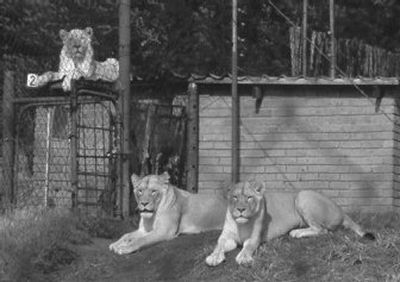South Africa bans captive lion hunts

CAPE TOWN, South Africa – South Africa’s environment minister announced long-awaited restrictions on hunting Tuesday, declaring he was sickened by wealthy tourists shooting tame lions from the back of a truck and felling rhinos with a bow and arrow.
Dismissing threats of legal action by the hunting industry, Marthinus Van Schalkwyk said the new law would ban “canned” hunting of big predators and rhinos in small enclosures that offer them no means of escape.
In addition, lions bred in captivity would have to be released into the open for at least two years before they could be hunted. Van Schalkwyk said a previously proposed six-month delay would not give lions enough time to develop self-defense instincts.
“Hunting should be about fair chase … testing the wits of a hunter against that of the animal,” he told a press conference. “Over the years that got eroded and now we are trying to re-establish that principal.”
South Africa is famous as home to the Big Five animals – lion, leopard, rhinoceros, elephant and buffalo. Its flagship Kruger National Park attracts hundreds of thousands of camera-toting visitors every year. Some 9,000 privately owned game farms and other government-run reserves also offer visitors a taste of the wild.
But it has become also become a choice destination for wealthy tourists willing to pay more than $20,000 to take home a “trophy” lion or rhino’s head.
The new law, which enters into force June 1, bans the hunting of animals that have been tranquilized. It outlaws bows and arrows for big predators and thick skinned animals like rhinos – one of the practices singled out by Van Schalkwyk as particularly appalling. And it bans the use of vehicles to chase the animal until it is too tired and terrified to flee.
“To see people who are half drunk on the back of a bakkie (truck) hunting lions which are in fact tame animals is quite abhorrent,” Van Schalkwyk – himself an avid hunter – told the Associated Press.
But conservationists said the law would be difficult to enforce and did not go far enough because it stopped short of an outright ban on intensive breeding of lions, leopards and other predators.
“The big thing for South Africa would be to stand up and say, ‘We are conservation leaders and this industry is immoral and unethical and we are not going to allow it,’ ” said Louise Joubert of the San Wildlife Trust, which campaigned for tougher regulations.